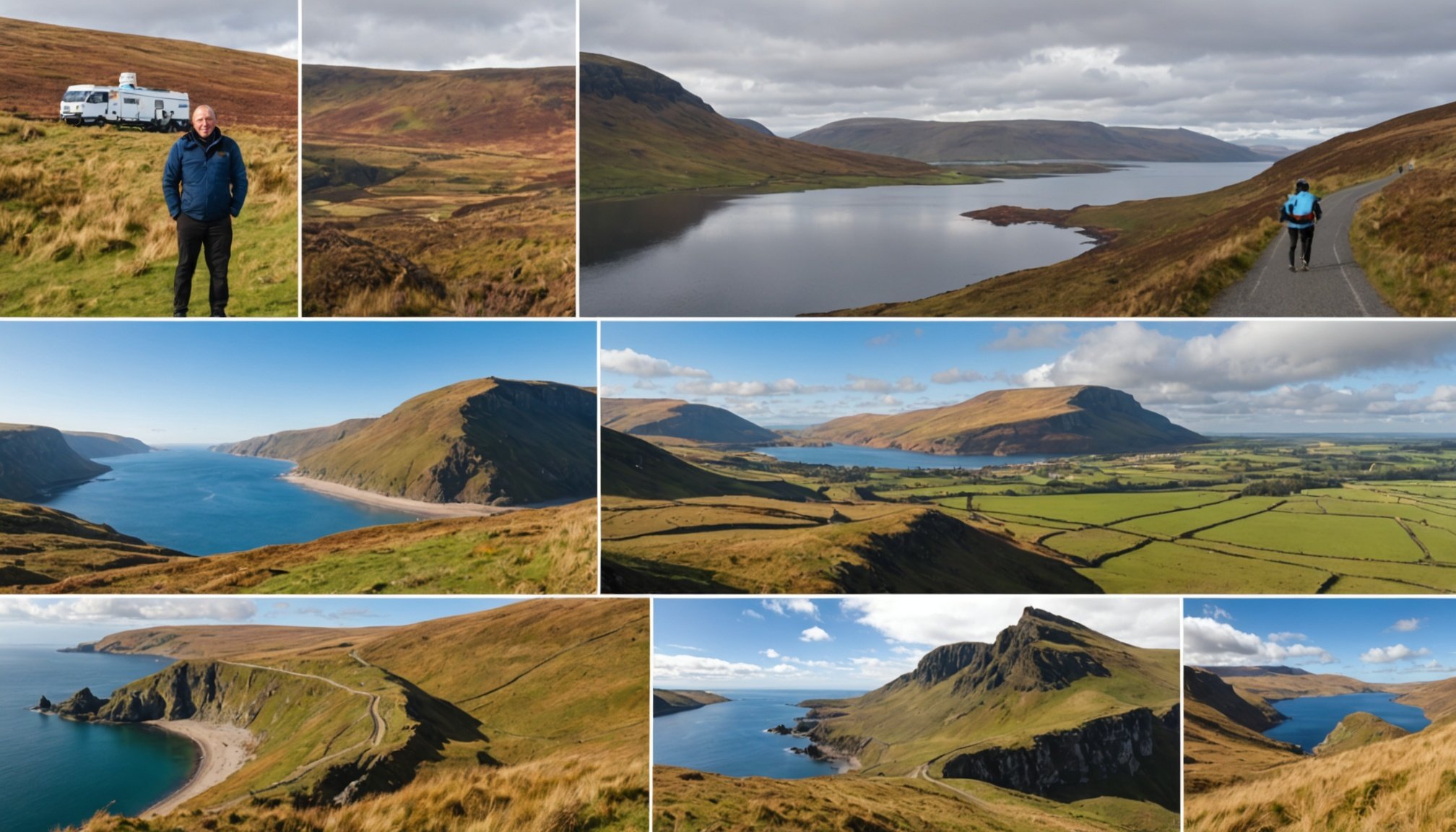Understanding the Current Landscape of Local Travel
The post-pandemic tourism environment in the UK has led to a significant shift in travel patterns, with a growing focus on local travel. Many individuals are becoming regional explorers, seeking experiences closer to home. This trend is influenced by various factors, primarily related to health concerns and sustainability.
Post-pandemic, travelers prioritize destinations where safety protocols are thoroughly implemented. The emphasis on travel safety is a response to existing uncertainties. This has nudged local travel providers to develop stringent safety measures, reassuring travelers and enhancing their confidence.
Topic to read : Boosting Mobile Payment Safety: Top Strategies for Protecting UK Gig Economy Workers
Sustainability has also come to the fore as an essential aspect of local travel. As people become more conscious of their ecological footprint, sustainable tourism practices are making travel more appealing. These practices include promoting eco-friendly transportation options and supporting local businesses that adhere to sustainable methods.
The evolving landscape offers a unique opportunity for regional businesses to adapt to these changing preferences. By integrating safety and sustainability into their offerings, local travel operators can capture the interest of the regional explorers. As preferences shift, the focus remains on delivering safe, reliable, and environmentally responsible travel experiences.
In the same genre : Enhancing e-commerce customer interaction: the impact of chatbots on service and engagement
Innovative Marketing Strategies for Regional Engagement
In the dynamic realm of post-pandemic tourism, creative marketing has become vital for engaging regional explorers. Various examples of successful tourism campaigns highlight how harnessing digital platforms results in amplified reach and impact. Local promotions often capitalize on creativity by offering unique experiences accessible through digital interfaces.
Social media serves as a robust tool in this nuanced landscape. It allows for real-time interaction and the delivery of personalised content that resonates with local communities. Tourism campaigns have effectively utilized platforms like Instagram and TikTok to showcase the vibrancy of local culture, captivating audiences with vivid imagery and narratives.
Another trend involves collaborations with local businesses. Engaging local influencers and entrepreneurs has proven effective in enhancing visibility and fostering community bonds. These collaborations provide authenticity to marketing efforts, appealing to travelers seeking genuine experiences.
In the post-pandemic environment, innovative campaigns frequently align with the values of safety and sustainability. This alignment not only attracts visitors but also reassures them of the commitment to responsible tourism. By integrating creative marketing with these core values, regional travel operators can sustain interest and invigorate local tourism through tailored, impactful strategies.
Community Involvement in Tourism Promotion
In the evolving landscape of local travel, community engagement emerges as a crucial factor for revitalizing tourism efforts. Communities can play an active role in driving regional tourism by participating in initiatives that highlight local culture and attractions. Engaging the community not only fosters a sense of ownership but also enhances the authenticity of travel experiences.
Community-Led Initiatives
Several case studies illustrate how local tourism boards have successfully implemented community-driven projects. For instance, local festivals and events organized in collaboration with residents have attracted tourists, boosting the regional economy. Such initiatives create unique experiences that resonate with both visitors and locals, reinforcing community bonds.
Benefits of Local Pride
Promoting tourism through communal activities also instils a sense of local pride. Residents become ambassadors for their regions, advocating for sustainable and welcoming environments. This approach not only attracts visitors but encourages them to immerse themselves in the local lifestyle, fostering reciprocal relationships.
Event Promotion
Event promotion by community members highlights the region’s innate charm, drawing attention to hidden gems often overlooked by standard tourist routes. When communities rally behind such efforts, the collective energy can lead to successful tourism campaigns, ensuring the long-term sustainability of local travel initiatives.
Emphasis on Safety and Sustainability
In today’s post-pandemic tourism environment, ensuring travel safety and promoting sustainable tourism have become paramount for attracting regional explorers. Increased attention to hygiene and safety protocols has played a critical role in building traveler confidence. Local travel providers have adapted by integrating contactless systems, which minimize physical contact and reassure visitors. These measures are not only practical but essential in maintaining a visitor-friendly atmosphere.
Simultaneously, the shift towards sustainable tourism highlights environmental responsibility in travel choices. Many regions now advocate for eco-friendly practices, such as promoting public transportation and encouraging the use of bicycles in local tours. By reducing reliance on cars, these initiatives not only lower carbon footprints but also offer tourists a more immersive experience of the local environment.
Moreover, regional travel destinations are pushing for sustainability by supporting local farmers and artisans. Tourists are encouraged to explore local markets, offering authentic experiences while boosting the local economy. Such practices appeal not only to environmentally conscious travelers but also to those seeking meaningful and genuine connections with their destinations. This dual focus on safety and sustainability positions local travel as a responsible and attractive option for modern explorers.
Leveraging Digital Transformation in Local Travel
In the age of digitalisation, digital tourism offers valuable opportunities for local travel, transforming the way regional explorers engage with destinations. Amid post-pandemic changes, technology in travel stands as a crucial factor. Virtual experiences, for instance, attract regional explorers by allowing them to explore attractions remotely before committing to a visit.
The rise of user-friendly platforms has made online experiences more accessible. These platforms offer inclusive and convenient tools for travel planning, catering to diverse needs. When platforms are intuitive, they encourage more people to become “weekend travelers,” exploring even the most remote areas.
Another important aspect is the use of data analytics. By analysing visitor preferences and behaviours, local travel providers can tailor offerings with greater precision. This approach enhances local promotions, creating engagement through personalised experiences.
- Virtual Tours: Encourages pre-visit explorations.
- Data Analytics: Tailors promotions to visitor preferences.
- User-friendly Platforms: Simplify travel planning.
Incorporating technology enables tourists to venture beyond the beaten path, while local operators benefit from increased visits and satisfied customers. As technology continues to evolve, so do the opportunities for local travel to thrive in engaging and innovative ways.
Innovative Packages and Itineraries for Regional Travelers
In the context of post-pandemic tourism, tailored travel packages have gained popularity, providing regional explorers with personalized experiences. By focusing on specific interests, these packages cater to diverse traveler preferences. They often include activities such as culinary tours, historic site visits, or nature excursions.
Local experiences crafted into bespoke itineraries offer travelers a deeper interaction with their surroundings. Collaborations between tourism boards and local attractions craft unique journeys that stand apart from traditional tourist paths. By doing so, they provide engaging encounters with local culture, cuisine, and history.
Additionally, encouraging multi-day trips can significantly enhance local exploration. Regional travelers can enjoy a more relaxed schedule to fully indulge in and appreciate the diversity a locality offers. Multi-day itineraries often combine activities like local festivals, artisan workshops, and hidden gem spots. This approach not only boosts local economies but promotes a sustainable tourism model.
By investing in these innovative packages, travel operators can attract regional explorers eager to experience something beyond the usual. Engaging packages and itineraries contribute to vibrant local tourism, setting a positive precedent for other regions aiming to enrich visitors’ travels with unforgettable experiences.
Case Studies of Successful Local Tourism Initiatives
To explore the success stories within post-pandemic tourism, examining specific case studies illustrates how local tourism boards have revitalized regional travel effectively. In Cornwall, the council’s integration of community engagement initiatives, such as local artisan festivals, has drawn significant interest, bridging tourists with authentic local culture and boosting the economy.
York is another valuable example. Their creative marketing strategy leveraged both social media and collaborations with local influencers, successfully portraying York’s historic charm through visually vibrant, immersive campaigns. This has significantly increased foot traffic to the city’s ancient sites.
Lessons gleaned indicate that respondents to evolving traveler desires for sustainability and safety are more likely to excel. Safe travel practices, along with promoting sustainable tourism, make destinations appealing, reassuring visitors of both their safety and environmental impact.
Key strategies to emulate involve prioritising safety, sustainability, and authentic community involvement. They collectively enhance not only local appeal but solidify the region’s reputation as a forward-thinking and community-oriented destination. Adopting these successful approaches can lead other UK regions towards significant improvements and spikes in regional exploration.











